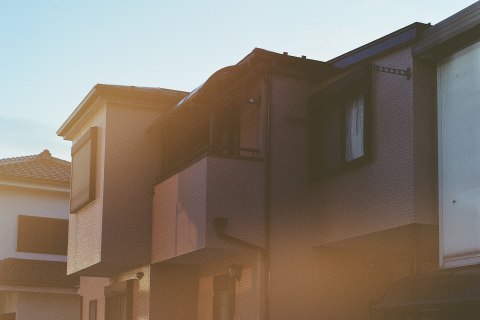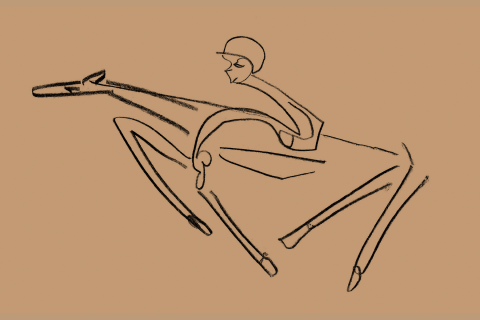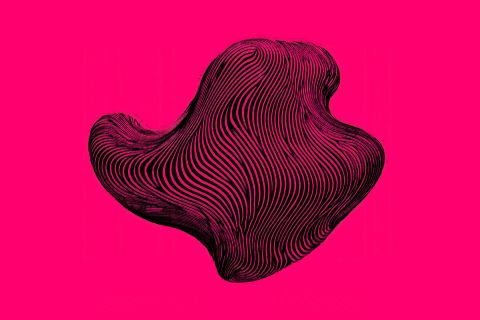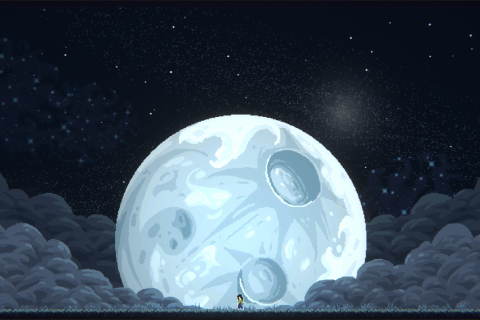Dean of Students
דקנאט הסטודנטים
مكتب عميد الطلبة
Bezalel in the Community
Throughout its entire years of existence, Bezalel has positioned itself as a crossroad intersecting various roads: geographical, political, social, religious and economic. This complex and unique positioning is challenging as it enables students, artists and creative individuals in Jerusalem to come out of their shell, notice the time and place they are in, live and create in the city with involvement and awareness to the tension, conflicts, diversity and complexity it holds.
The academia highly regards students’ involvement in the community and society in which they function and create, striving to deepen social and environmental awareness on the Israeli map in general and Jerusalem in particular – by implementing social and educational programs, courses that combine social involvement, all this while connecting to the local communities and acting in a manner that has applicable, critical meaning to the acquired academic knowledge.
Over the years, Bezalel has won recognition and respect for its social involvement in the community, and the academia is considered a leading institution in its field. Bezalel’s social involvement focuses on four fundamental values:
Educating towards active, conscious and influential creative work – by creating academic opportunities for social and local activity; by encouraging social and civil activism in the Jerusalem vicinity; and by encouraging critical thinking and open dialog on social issues.
Academia as a catalyst for change – training the next generation of artists and designers for community initiatives via courses and projects combing social activism.
Sharing acknowledge via unique projects and courses that share the conceptual and practical knowledge in academia-community led dialogs, which promote mutual learning and influence.
Expanding the variety through exposure projects to art, design and architecture in social and geographical peripheries, as a “bridge” to higher education and equal opportunities, and in order to expand the diversity of students at Bezalel in particular and the field of Israeli art and design in particular.
Bezalel’s social involvement is practically implemented in three active categories: courses combining social activism, exposure programs and access to children and youth, and social projects.
Community Projects
A list of initiatives that combine Bezalel’s disciplinary knowledge with third sector organizations, social NGOs, directors and community collaborations. Following is a list of social and community programs and initiatives that reward its students with grants of different scopes and/or credit points in exchange for diversified activities. The details brought here constitute the key points of the program; the full details are true as of the latest update here, and may change from time to time. It is recommended to approach the contact persons listed for each project in order to receive the fullest, most updated details.
The Clubhouse community joins individuals who cope with the impact of a mental crisis as the professional staff works in collaboration and reciprocity with them to improve their quality of life. The Clubhouse offers a complete change of perspective and vintage point: each individual is perceived as a valued participant, a colleague that can contribute to the group.
The joint project by Bezalel and the Clubhouse community includes participation in the conceptualization and execution team made up of students and Clubhouse representatives who, together, will lead an annual project to develop topics of interest arising from practical needs, including an option to design the new House, while integrating into community life and maintaining the Clubhouse values.
Location: Jerusalem city center
Scope of grant: 3500-6000 ILS and/or credit points
Grant terms: 4 weekly hours – a total of 80 working hours with additional training sessions
Target audience: All students; priority given to students in their second year or higher.
For more information: Assaf Alkalai 052-6123990 asaf.e@bezalel.ac.il
The ‘Dialog through Art’ project pairs up young adult members of ‘Shekel - Inclusion for People with Disabilities’ organization, with Bezalel students, inviting them on a join creative venture in a one-on-one format. Each pair meets once a week throughout the year.
The uniqueness of the project is that it’s not classified a mentorship program, but a meeting that adopts and emphasizes the principle of equality among artists, regardless of their daily functioning. An exhibit is held at the end of the year at Barbur Art Gallery, showcasing significant points and products from the process. The project is open to students from all departments. The placements and pairing up are done after the screening interviews. Location: the meetings are held at Bezalel of any other location chosen by the pair.
Scope of grant: 3500 ILS
Grant terms: 78 working hours with additional training sessions. Activity hours will be determined by the pair.
Target audience: All students; priority given to students in their second year or higher.
For more information: Sari Schwitzer 052-8521381 sari2270@gmail.com
Assaf Alkalai 052-6123990 asaf.e@bezalel.ac.il
The Jerusalem Open House for Pride and Tolerance is an organization that provides a social community center for the LGBQT community in Jerusalem. The Open House has been in operation for over 20 years, offering medical, psychological, social and community support for the LGBQT community members of all ages.
The partnership between the Open House and Bezalel is meant to give participants in the youth groups another different tool for self-expression. An expression that is based on creativity and art as a medium for learning, development and representation, as well as an exposure to academic studies of art and design as part of the youth groups’ meetings held at the Open House. These groups are meant to aid in developing personal strength, creating social affiliation, providing support and legitimacy as well as confidence in exploring personal identity.
Location: Jerusalem city center
Scope of grant: 4000 ILS
Grant terms: 4 weekly hours – a total of 80 annual hours with additional training sessions. Activity hours will be determined by the pair.
Target audience: All students; priority given to students in their second year or higher.
For more information: Assaf Alkalai 052-6123990 asaf.e@bezalel.ac.il
The program brings together patients hospitalized in the different wards at Hadassah Mt. Scopus Medical Center – adults and children from all population sectors, with students. This one-on-one encounter serves as an invitation for creativity, momentarily stepping out of the “patient” mindset and into that of a “creator”, experimenting with various techniques and materials, which are foreign to the hospital environment.
The grant is intended for students of all departments, who work in pairs on different days throughout the week (Sunday-Friday) during the morning or afternoon hours. The activity awards them with a grant and involves bi-monthly training and professional guidance meetings.
Location: Hadassah Medical Center (adjacent to the university campus)
Scope of grant: 5000 ILS
Grant terms: 100 annual hours with additional training sessions. Activity hours in the morning or afternoon (9:30-13:30 or 14:00-18:00), with limited option for activity on Friday.
Target audience: All students
Special conditions: According to the Ministry of Health guidelines, the project participants will have to receive basic vaccinations to protect their health and the health of the hospital patients (for those who have not taken the vaccines before).
For more information: Bina 050-6732958 bina.haverut@gmail.com
The Community Educational center (CEC) offers evening courses for friends from the foreign workers’ community who hardly have any educta8oinal frameworks for immigrants and refugees. The center was established to address the need arising from the various communities for education and knowledge. The project’s uniqueness is that it is run by a leadership group made up of the communities of immigrants and refugees.
The center offers a variety of educational programs: professional training courses, language, orientation in Israel society, art and leisure.
Scope of grant: 4500 ILS
Grant terms: About 80 annual hours with additional training sessions, in the afternoon.
Target audience: M.A. students
For more information: Ofir Sivan 052-6087708958 cecsophie@gmail.com
| Assaf Alkalai 052-6123990 asaf.e@bezalel.ac.il
The Enosh organization provides community-based mental health services for people with psychosocial disabilities. ‘Anat Center for the Arts’ in Jerusalem offers workshops and classes for these individuals in photography, painting, theatre, ceramics and writing.
The collaboration between Enosh and Bezalel invites students from all Bezalel departments to offer a course or project in their field of study and knowledge, led over 20 sessions throughout the year, in a manner suited to the members’ needs.
The project consists of one bi-weekly training (prior to the activity), and is grant-awarding.
Scope of grant: 4500 ILS
Grant terms: 80 annual hours with additional training sessions. The sessions are held on Mondays between 18:00-19:00.
Target audience: Students in their second year or higher.
For more information: Merav Ben Zaken 054-7110350 merav.z@enosh.org.il |
Assaf Alkalai 052-6123990 asaf.e@bezalel.ac.il
‘Hut HaMeshulash’ organization was founded in 1999 to care for the youth and young adults at risk in the center of Jerusalem. Today, the organization runs three bodies: a hostel for young men, a hostel for young women and a drop-in center in the city center.
The grant program will be held in the drop-in center located at Zion Square and serves as an open house for hundreds of young men and women at risk each year. Two students who are found suitable for this type of work will lead an evening sessions with a social-artistic orientation.
Scope of grant: 4000 ILS
Grant terms: 80 annual hours with additional training sessions. The sessions are held on Mondays between 16:00-19:00.
Target audience: Students in their second year or higher.
For more information: Lotem Burstein054-4458289 |lotem.burstein@mail.huji.ac.il
Assaf Alkalai 052-6123990 asaf.e@bezalel.ac.il
This project was meant to create depth between its participants while engaging in mutual learning in pairs – Arabs and Jews, according to their area of study. The students meet on a weekly basis. Half the time is spent with the Jewish participant helping the Arab participant with the Hebrew level required for his studies (reading essays, academic writing, etc.) and in the second half is spent with the Arab participant teaching his colleague spoken Arabic. In addition to that, content activity is held in groups throughout the year.
Scope of grant: 2 credit points (no monetary compensation)
Grant terms: 80 annual hours - 40 teaching hours, 40 learning hours
Target audience: All students
For more information: Noa Dror 052-3780639 |maayanbamidbar1@gmail.com
An annual mentorship for foreign students who arrive for a student exchange program at Bezalel for one or two semesters.
Each mentor is paired up with four students to mentor. Each one of them gets two hours a week (together or separately).
Scope of grant: 2 credit points (no monetary compensation)
Grant terms: 50 hours
Target audience: English-speaking students
For more information: Daniella Slonim 054-8019085| daniella.slonim@gmail.com
Art enrichment and training programs – for youth from Neve Sheanan neighborhood in Tel Aviv, boys and girls from the refugee community in Israel. The program includes art, dance, literature and mindfulness studies and is a collaboration between leading art entities in Israel for youth to gain access to artistic endeavors as a source of knowledge, skill, inspiration and empowerment.
Throughout the year, the learning sessions will be combined with guided tours and meetings with leading professionals.
Scope of grant: 5000 ILS
Grant terms: 80 volunteer hours with additional training sessions. Sunday and Wednesday, 15:00-18:00, at Neve Sheanan neighborhood in Tel Aviv. A one-hour training will be added to each session.
Special conditions: experience working with youth r teaching experience – an advantage. Responsibility, curiosity in people, sensitivity and tolerance of different cultures.
To sign up for an interview, please contact us by email with your name, I.D. number, phone and email address.
For more information: Adi Engelman |adi@marcel-art-projects.org
Educational Programs for Schools – Youth Excellence Centers in Ofakim and Umm al-Fahm
Programs for locating, exposing and impart tools to excelling students in Ofakim and Umm al-Fahm. The participants arrive at the center once a week, for three years, and take part in rotating courses led by Bezalel lecturers and graduates from different disciplines. The program promotes the development of all participants as young and curious creators and future artists who are involved in the current field of art and design.
For more information about the excellence centers: Noa Afek noaafek@gmail.com
The program in Ofakim runs thanks to the generous support of the Mifal HaPais Council for the Culture and Arts, Ofakim Municipality, Matanel Foundation, Jewish Federation of Greater Metrowest. Ofakim Excellence Center Instagram
For more information: Maayan Shachar bezalelecofakim@gmail.com
The program in Umm al-Fahm is a collaboration with the Umm al-Fahm Art Gallery, supported by the Edmond de Rothschild Foundation. Umm al-Fahm Youth Excellence Center | Umm al-Fahm Instagram – special for COVID-19
For more information: Nardin Saruji bezalel.umelfahem@gmail.com
Children and Youth Exposure and Accessibility Programs
An "exposure" program aimed at introducing children from Jerusalem and its vicinity with the fields of art and design. As part of the program, schools and various groups visit Bezalel on Sunday mornings 8:30-12:30)) to work in eight groups in academic workshops.
The annual visitation program is detailed at the start of each year.
A program for high school students in Jerusalem and its vicinity (in Israeli education system and Palestinian system (East Jerusalem), including Modiin and Beit Shemesh). The meetings are held once a week for three years at the Bezalel campus, and introduce high school students with the vast selection of its academic departments.
Each year, the students participating in the program choose a department in which they want to learn and deepen their knowledge of, exposing themselves to its unique contents, creating and experimenting through practical experience of diverse assignments and techniques unique to the department they chose to specialize in.
Many of the program graduates join the various institutes for higher education as students later on – Bezalel being among them.
The body awarding the grant: PERACH (a National program for social impact) and Bezalel Scope of grant: 5200 ILS for each academic year
Grant terms: 4 weekly hours with additional training sessions (evening program – Sunday, 16:30-20:30; morning program – Sunday, 8:30-12:30).
Target audience: All students; priority given to second-year students and higher.
Special conditions: Each pair of students works with a group of 5-10 high school students.
A program aided by the Edmond de Rothschild Foundation, which invites students and graduates who have just completed their studies (16 in total), to work in the school framework and expose students to art and design in Jerusalem and Bat-Yam.
A studio operates in each school, joint by a student and graduate, as part of the two-year program which begins in senior year and ends at the close of the academic year following graduation.
During the first year of the project, the student becomes familiarized with the school in which he or she teaches 4 weekly hours, in return for an expanded tuition fellowship. On the second year, as a graduate, the studio serves as his or her personal workspace as well as for teaching at the school, in return for a monthly living stipend.
Submissions for candidacy will be made through an open call published for the students on May of each year.
For Senior-year Students
Scope of grant: 15,000 ILS (tuition fellowship and living stipend)
Grant terms: Commitment to 4 teaching and leadership hours in Jerusalem or Bat Yam. Participation in a supplementary course for 2 credit points.
Target audience: Senior-year students
Special conditions: Strong inter-personal skills, strong expression skills, diligence, initiative and creativity. Experience working with school kids or in different frameworks, teaching or leadership – a significant advantage.
For Fresh Graduates
Scope of grant: Monthly wage / budget of 3200 ILS for 10 months | a studio workspace on the school premises for independent work | Guidance and support in the educational and creative processes | Group exhibition for the program participants
Grant terms: Commitment to 8 teaching hours + 12 weekly attendance hours in the studio over 3 work days (at least)
Target audience: Graduates who have completed their studies in the previous academic year.
Special conditions: Strong inter-personal skills, strong expression skills, diligence, initiative and creativity. Experience working with school kids or in different frameworks, teaching or leadership – a significant advantage.
For more details about the Bezalel Colleagues program: Noa Afek noaafek@gmail.com |Matan Oren amitbezalel2020@gmail.com
Courses Combining Social Activism
Courses combing social activism which are based on a weekly meeting and a dialog with the community and society. The course selection changes in part from one year to the next. Following are the social courses offered in the 2020-2021 school year:
In the past thirty years, a major shift has taken shape in the art world, and under its auspices, the social and collective role of art has been illuminated. These changes reflect the needs of artists and art institutions to restate the artist's socio-political role as well as that of art itself. The social, communal practices that developed as a result of this shift raise ethical questions pertaining to responsibility, authority and authorship, asking artists to develop and exercise a set of conversational skills, sensitivity and attentiveness to the environment in which the artists works.
As part of the course, we will examine the artists' work possibilities outside the museum walls, exhibition halls and galleries, in collaboration with municipal bodies such as the Beautification Department, the Engineering Department and the Welfare Department, figures such as architects, contractors and agronomists, and community figures such as residents, social workers and different reference groups. Alongside this, we will be exposed to artists working as part of collectives in vacillating neighborhoods and cities in Israel and abroad, learn about the challenges of collective or activist artistic creation, and discuss ethical and esthetic issues stemming from it.
In addition, we will review the development of public sculpting in recent decades, while emphasizing the term 'site specific' in its urban context, while in the Israeli context – examine the shift in public sculpting, mainly from a monument to a collective instigator. Along with that, we will examine standards, materials and demands placed on physical intervention in public space, and through that, rethink the current potential and role of public art. The course will be based on a variety of tours and encounters with professionals, alongside conceptual research, while asking – what more can artists do? And what more can art become? This question will be the imaginative force behind the course.
The focus of the seminar is working methods with combined skillsets to develop proposals and products in a sustainable social design.
The Radius 100 action seminar observes the local neighborhood setting within a site-specific radius of 100 meter and runs in collaboration with artists from the ‘Mifal’ and ‘Muslala’ groups in Jerusalem.
The seminar aims at connecting between the designers’ thoughts processes and creativity and the various methods of investigation and practice in order to offer innovative viewpoints, solutions and ideas in the field of sustainable social design.
The seminar’s setting deals with drawing a collage of proposals for sustainable design intervention, while sharing knowledge with social activists and relevant audiences, using three circles of action that move between the personal, team and group-class work.
By combining the between the students’ personal, intuitive and creative action, and the research process, a new ‘open investigation’ course of action is taken as a major working method in the seminar. This method offers additional tools for the personal toolkit as well as encourage motivation towards creativity in new conceptual territories.
During the seminar, the students will learn to develop knowledge and working methods concerning the relationship between designers, community and setting, based on:
- Practice supported theory as an applied tool.
- Broadened thinking that dictates non-linear research and development processes.
- Combined working methods that utilize a mixture of tools to formulate sustainable social design scenarios and products. For example: Quoting essays (Derive & Imageability), blogs, internet videos, photos, maps, socio-spatial mapping, soundscape, visionscape, illustrations and intuitive drawings.
- The seminar work will be executed through a dialog between the personal, team and class work.
- Formulating a sustainable design proposal while sharing knowledge and adapting to the characterization of local-social needs arising in the research design process.
- Developing the proposal’s pitching to interested parties outside the academia.
- The seminar’s final project is a proposal development for local intervention in the 100-meter radius, including documentation of the different work stages.
A communication design journey with real clients aiming to create an impact in the field. Combining between strategy development skills and, design and real-time implementation. The process includes personal development, group work, leaning through experimentation, and dedicated guidance by the course lecturers in client relationship – from learning the agenda down to the final products.
The studio is a home for communication activity on issues that have a major influence on the well-being of the individual as well as the entire society. Each year, we choose a core subject – different students treat it from different angles. Together, we make a difference in areas like human rights – gender and identity, education, health, the right to a home, the rights of disadvantaged populations and more.
The students will ear to use their design skills in an educated manner and run a real, complex visual communication project, will translate their professional insights into client language and know how to guide a client throughout an entire process and learn how to apply and integrate the projects in actuality.
There is an option to continue supporting the organization’s needs and its material development and integration activity for an additional 2 credit points considered as social involvement hours, subject to Bezalel and the Institute for Higher Education criteria.
The Students will develop a toolkit that will enable them to combine and implement the methodology of design thinking and craftivism values in order to achieve creative social involvement. Craftivism engages in communal/social/political issues, using craft to stimulate change and expand the discourse on social matters. Craftivists use their creative skills to initiate collaborations, dialog, and enterprises dealing with social innovation. Design thinking is a methodology that uses the designer’s creative skills to solve problems beyond the design practice itself, in business and social contexts. This methodology centers around the person and helps develop ideas and new enterprises as well as create differentiation and innovation in existing products and services. During the course, students will explore and experiment implementing the 5 stages of design thinking methodology. Students will be exposed to a wide range of craftivism artwork from Israel and abroad. In the course, we will analyze social craftivism initiatives and processes using design thinking methodology, and implement and apply this methodology in a proposal for a craftivist project relating to a local community presented in the beginning of the course.
Students will develop the work in small interdisciplinary teams that inspire one another and enrich the project. Each participant will be given an opportunity to utilize their departmental toolkit. The tools acquired during this course will be useful in other departmental courses later on. The final product of this course will be a proposal for a craftivism project based on design thinking methodology.
The Florence Project is a unique project introducing students from all academic departments in their last semesters of school, with real challenges faced by the health system. In an extraordinary collaboration between the Soroka Medical Center staff headed by CEO Yarden Nevo, his Deputy Ella Amoyal and Deputy Nursing Director Hagit Hadad, a design studio has opened inside the hospital premises, in which processes will be examined, needs will be identified and solutions will be developed for hospital comers.
To read more about the Florence Project click here.



